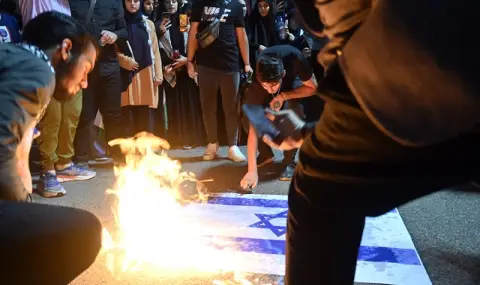Deep divisions will limit progress in reconciliation talks between Palestinian factions Hamas and Fatah this month, talks with five sources in the groups show, but the meetings underscore that the Islamist group is likely to retain influence after Israel's war in Gaza.
Talks between Hamas and Palestinian President Mahmoud Abbas' Fatah party will take place in China in mid-June, according to officials from both sides. They follow two recent rounds of reconciliation talks, one in China and one in Russia. The Chinese Foreign Ministry declined to comment.
The next meeting will take place amid attempts by international mediators to reach a ceasefire agreement for Gaza, with one of the key obstacles being a plan for how the enclave will be governed after the war ends.
Regarded as a terrorist organization by many Western nations, Hamas was shunned long before its October 7 attacks that sparked the Gaza war.
Hamas, which ruled Gaza before the war, recognizes it cannot be part of an internationally recognized new government in the Palestinian territories when fighting in the enclave eventually ends, the source said.
However, the goal of the talks is for Fatah to agree to a new technocratic administration for the West Bank and Gaza as part of a broader political deal, said the source and senior Hamas official Basim Naim.
"We are talking about political partnership and political unity to restructure the Palestinian community," Naim, who attended the previous round of Chinese talks, said in an interview.
"Whether Hamas is in the government or out, this is not the primary demand of the movement and it does not see it as a condition for any reconciliation," he said. Naim, like much of Hamas's political leadership, operates in exile outside Gaza.
The prospect of Hamas surviving as an influential political player is a thorny issue for Western countries.
Despite Israeli Prime Minister Benjamin Netanyahu's goal in the Gaza war being the destruction of the Iran-backed group, most observers agree that Hamas will exist in some form after the ceasefire. An offshoot of the Muslim Brotherhood, the movement has deep reach and ideological roots in Palestinian society.
The United States and EU oppose any role for Hamas in governing Gaza after the war, during which Israel's offensive has killed more than 36,000 Palestinians, according to Gaza's health ministry.
However, some US officials expressed doubt in an off-the-record conversation that Israel would destroy the group. A senior US official said on May 14 that Washington believed Israel was unlikely to achieve a "total victory".
Western countries support the idea of post-war Gaza being governed by a renewed Palestinian Authority (PA), the administration led by Abbas that has limited autonomy over parts of the West Bank. Based in Ramallah, the PA is widely recognized globally as representing the Palestinians and receives security assistance from the United States and the EU.
Led by Abbas and, before him, Yasser Arafat, Fatah was the undisputed leader of the Palestinian cause for decades until the rise of Hamas, an Iranian-backed Islamist movement.
The PA also ruled Gaza until 2007, when Hamas ousted Fatah from the enclave, a year after defeating Fatah in parliamentary elections - the last time Palestinians voted.
In March, Abbas installed a new PA cabinet headed by Mohammad Mustafa, a close aide of Abbas who oversaw the reconstruction of Gaza during a previous stint in government from 2013 to 2014. Although the cabinet is made up of technocrats, the move of Abbas angered Hamas, which accused him of acting unilaterally.
Senior Fatah official Sabri Saidam told Reuters that forming a new government would be a waste of time.
A second senior official familiar with Fatah's terms of talks with China said it wants Hamas to recognize the role of the Palestine Liberation Organization (PLO) as the sole legitimate representative of the Palestinians and commit to agreements signed by the PLO. .
This would include the Oslo Accords, signed 30 years ago, under which the PLO recognized Israel and which Hamas fiercely opposed.
The official said Fatah would like the government to have full security and administrative control in Gaza - a challenge to Hamas' influence there.
